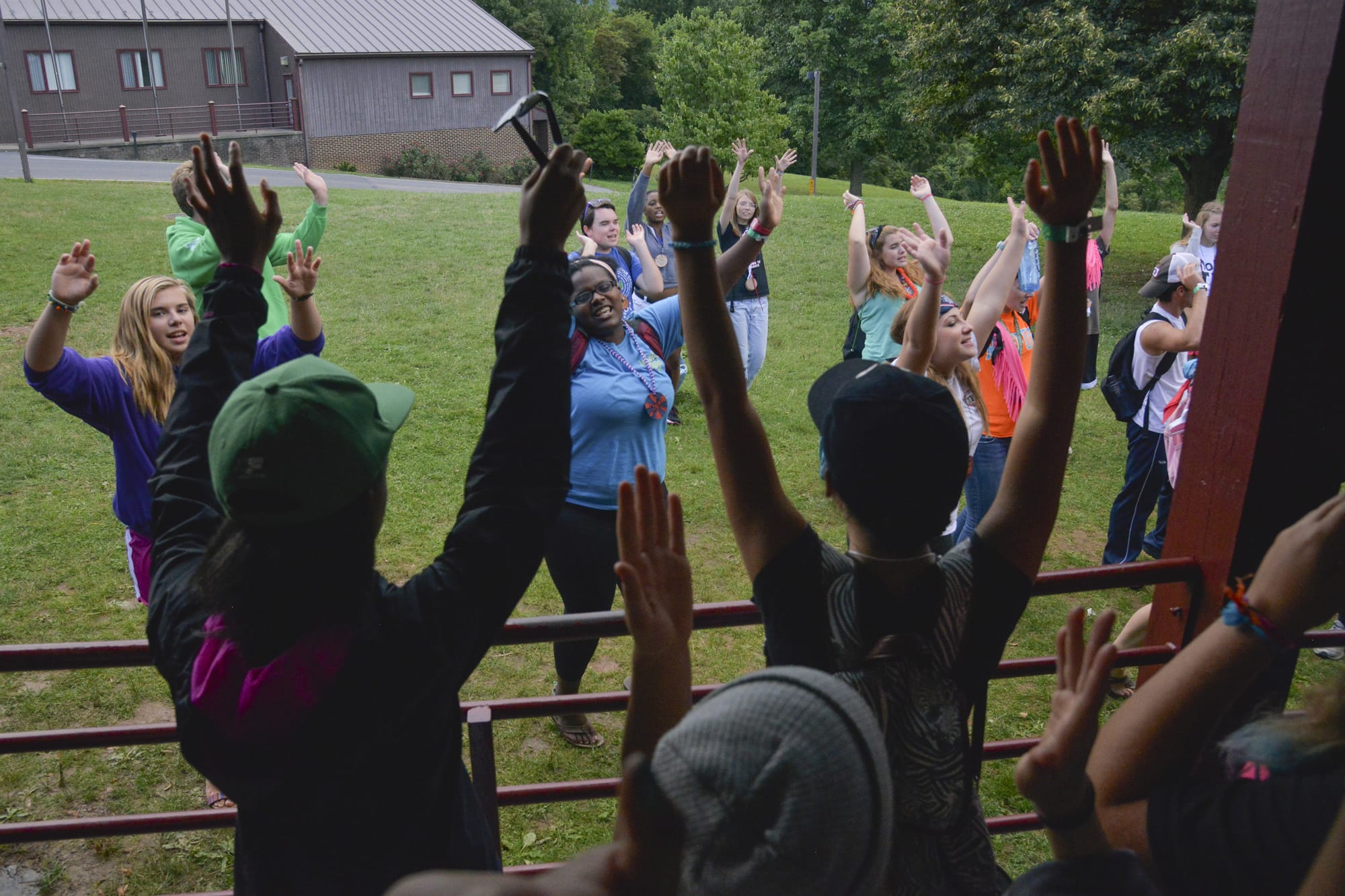It smells like sunscreen and bug spray and swimming pool chlorine in the lush, wooded mountains of Front Royal, Va., the telltale scents of summer camp. For a week, the children at Camp Corral share bunks, rock climb, pretend to be spies and make the noises of kids being kids.
But when it comes time to retire the American flag at week’s end, silence replaces the laughter and squeals. For the sons and daughters of active, wounded and fallen military men and women, the ceremony carries special emotional weight.
Dominic Gierber recalled that moment in his first summer as a camp counselor two years ago. He was sitting next to an 8-year-old camper who had shared his cabin all week. During the ceremony, camp staff explained that the flag had served the country and it was now time to honor it and let it go.
The boy started to cry.
“I could see it tore at him personally,” recalled Gierber, 19. “He said, ‘I don’t get it, it’s still a flag. It’s still our friend. Why are they doing this?’ “



